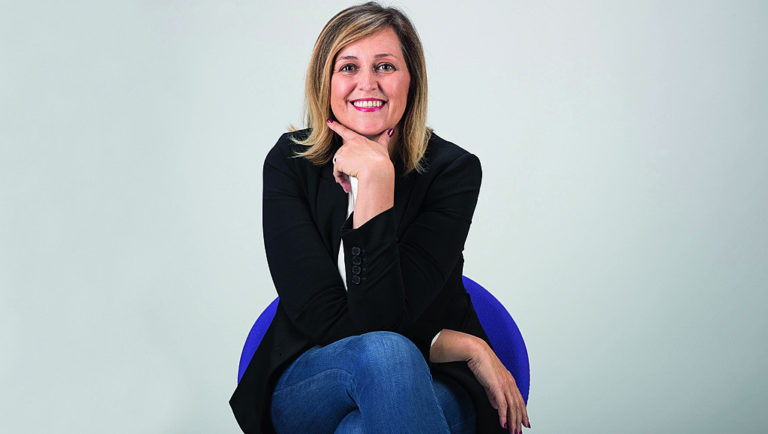Freshly nominated as the new Manager of Riva del Garda Fierecongressi, you found yourself having to face an unexpected global emergency like Covid-19. What did you and your team do during this period of lockdown? What were the priorities?
We decided to take advantage of this phase of clear ‘inactivity’ to reflect in the long-term on the events we organise, including especially Expo Riva Schuh. We had many ‘virtual’ encounters with companies and leading players in the market, with the aim of setting into motion an innovative project that could reinforce our ties to them with a double thread over the course of the entire year.
Can you explain this project to us in detail?
Over the course of 2020, we have decided to plan a series of meetings with companies and the main Italian and international purchasing groups, with the aim of better understanding the moment we are experiencing. The first of these meetings will be the webinar of 22 July, which will see important players from production and international distribution as the protagonists, with the aim of offering a clear picture of the market during this delicate historic moment through the presentation of market studies, problems, forecasts, etc. In the months to follow, there will be two more meetings based on new consumer trends and changes brought about the lockdown and post-Covid era, which have unavoidably also influenced the consumer.
What are the first trade fair events that you plan on organising in Riva del Garda and what guidelines are you working on to hold them in complete safety?
We have tentatively decided to schedule the first events starting from the month of September. They will be events in the medical-scientific field, which will partially be held face-to-face and partially in a hybrid format, with transmissions in streaming and direct moments for interaction. To guarantee social distancing and maximum safety, we have set up larger areas for the on-site events, while also catering and restaurant services will follow the new protocols.
As far as Expo Riva Schuh and Gardabags are concerned, with the cancellation of the June edition, the two events will directly proceed to the winter edition that will be pulled in to the end of 2020: what changes will occur in the two fairs in terms of exhibition space and organisation?
After many consultations with companies, buyers, but also the area’s hotels and other facilities, we have determined that the most suitable dates for holding Expo Riva Schuh will be from Friday 11th to Monday 14th December, with a preview of the presentation of the winter season. There will be restricted entry and the need to pre-register, choosing a time slot for the visit. At the same time, the fair will remain open for longer, to make it easier for visitors, with a number of different entry points. Where it is not possible to enlarge the hallways, we will create one-way exhibition routes. All this will ensure maximum safety to companies and visitors, while at the same time allowing them to organise their work and meetings in the best way possible.
In your interactions with exhibitors and buyers during this period, what problems and needs have emerged?
Distribution is quite interested in moving up the winter season’s purchases, with the aim of first perfecting the collection, but also for better structuring the sales and marketing strategies. This need regards around 40% of the companies asked, and not just those from the Far East – as one might think – but also European firms. The date of June, instead, seems perfect for the summer season, and so, it will be confirmed.
In light of what happened, how are your proceeding with regards to ‘Expo Riva Schuh Around the World’?
The ‘Expo Riva Schuh Around the World’ project will also continue in the future, always in collaboration with ICE and will regard in particular the United States, Canada, Eastern Europe, the Middle East, Japan, and Singapore, with the aim of promoting our fair in these countries, but also creating a direct line with these markets. We are thinking of holding physical events, like those organised in the past, which could however, if the need were to arise, be flanked or substituted by webinars and online events.
With a view to the long-term, once this medical emergency has ended, how will the panorama of international trade fairs change?
I believe the fair, as an interactive moment, is irreplaceable, above all in a context like that of footwear and leather goods, where it is fundamental to see in person and ‘touch with your hands’ the product, so that correct purchasing strategies can then be undertaken. At the same time, this historic phase we are going through has made us aware of how important the organisation and planning of work is when it comes to optimising time and resources, with a production chain that connects companies to customers. Technology will accordingly be fundamental in presenting new products and establishing an agenda of meetings at the fair, which will allow visitors to optimise their time and companies to put together the resources needed to manage the event.




